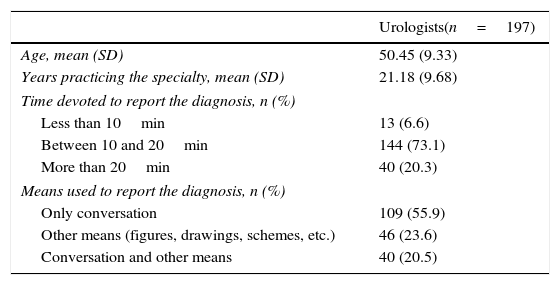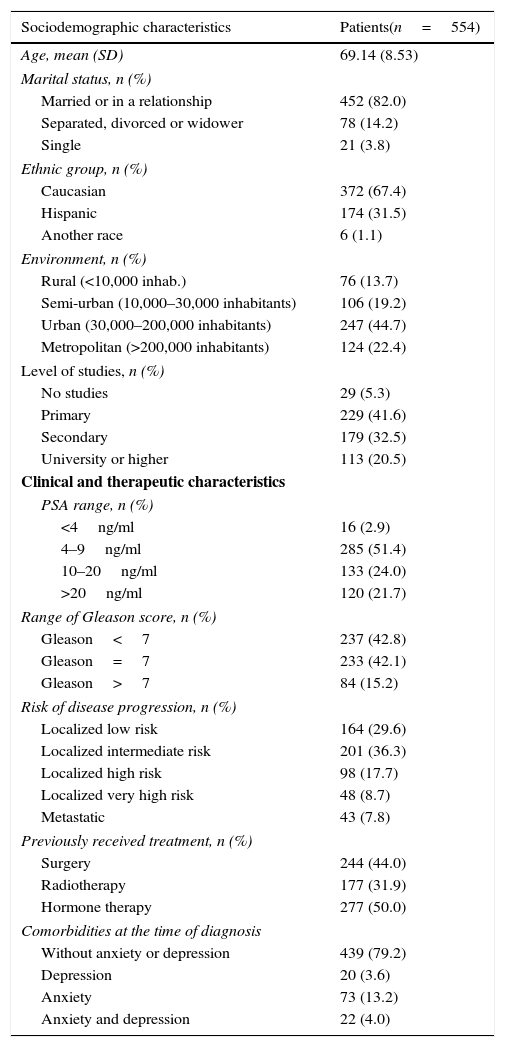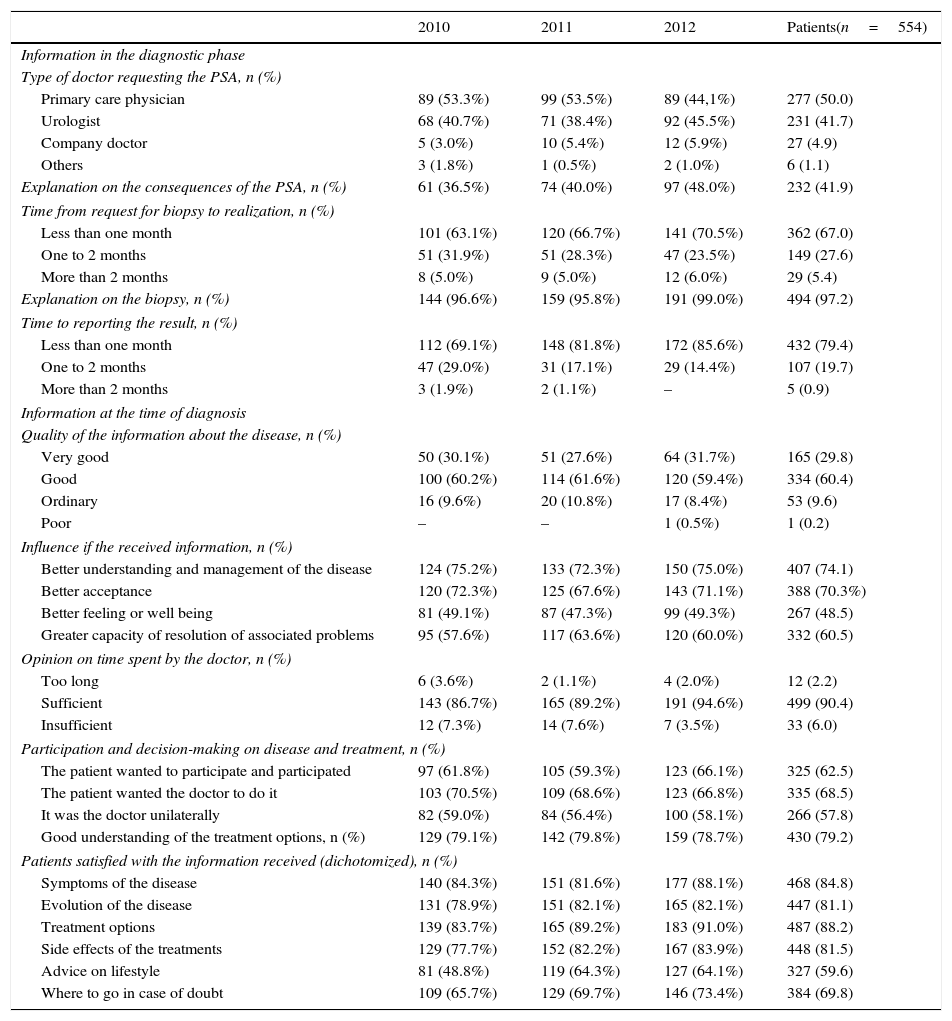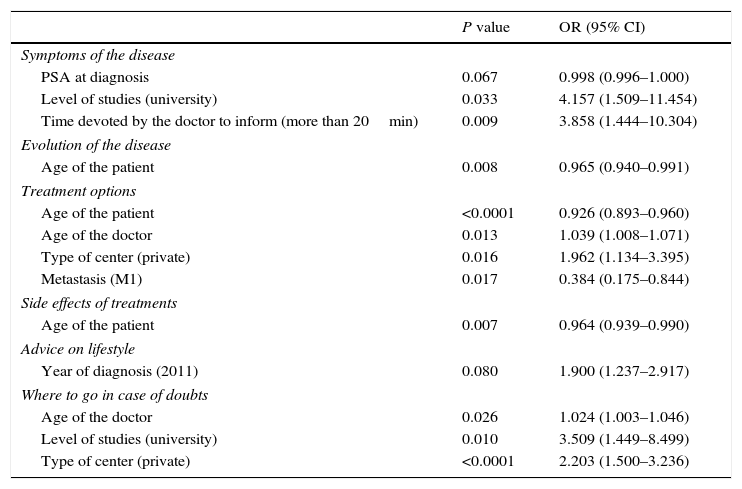To assess the perception and degree of satisfaction of Spanish patients with prostate cancer (PC) concerning the information received during the medical care process.
Materials and methodsWe analyzed information on the perception of the medical care process of 591 patients with PC who attended a consultation. We also studied their degree of participation in decision making and the association between perceived satisfaction and the demographic and clinical variables, both of patients and specialists.
ResultsSome 90.2% of the patients stated that they had received, mainly from the urologist, an appropriate amount of information about the disease. More than 80% of the patients were satisfied with the information received at the time of diagnosis. Some 70.3% of the patients stated that they better accepted the disease thanks to the information provided, and 60.5% believed that they had a better ability to resolve problems. Some 90.4% of the patients considered that the time provided by the specialist was appropriate. Some 62.5% of the patients participated in making decisions about their disease and treatment. Age (both of the patient and specialist), the extent of the disease, the time dedicated by the specialist and the type of center were factors that had a significant association (p<.05) with the satisfaction achieved.
ConclusionsThe perception and degree of satisfaction that Spanish patients with PC have of the information received during the medical care process is good and is paralleled by a high degree of active participation in the therapeutic decision making process.
Evaluar la percepción y grado de satisfacción de los pacientes españoles con cáncer de próstata (CaP) respecto a la información recibida durante el proceso de atención.
Materiales y métodosAnalizamos la información referente a la percepción sobre su proceso de atención en 591 pacientes con CaP que acudieron a consulta. Además, se estudió su grado de participación en la toma de decisiones, así como la asociación entre la satisfacción percibida con las variables sociodemográficas y clínicas, tanto de pacientes como de especialistas.
ResultadosEl 90,2% de los pacientes afirmó obtener, principalmente del urólogo, una apropiada cantidad de información sobre la enfermedad. Más del 80% se mostró satisfecho con la información recibida en el momento del diagnóstico. El 70,3% afirmó aceptar mejor la enfermedad gracias a la información recibida, y el 60,5% consideró tener mejor capacidad de resolución de problemas. El 90,4% consideró que el tiempo dedicado por el especialista fue el adecuado. El 62,5% participó en la toma de decisiones sobre su enfermedad y tratamiento. La edad (tanto del paciente como del especialista), el grado de extensión de la enfermedad, el tiempo dedicado por el especialista y el tipo de centro fueron los factores que presentaron una asociación significativa (p<0,05) con la satisfacción obtenida.
ConclusionesLa percepción y grado de satisfacción que los pacientes españoles con CaP tienen de la información recibida en el proceso de atención es buena, y es paralela a un alto grado de participación activa en la toma de decisiones terapéuticas.












